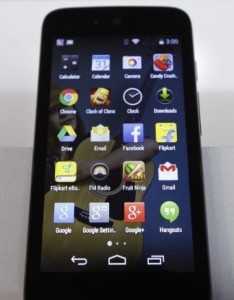 Up until recently, if you live in the United States the purchase of a mobile phone was tightly linked to your purchase of a multi-year wireless provider contract. If you got a simple flip phone or basic internet enabled phone, you might pay little or nothing for it in return for signing the two-year contract. You might pay anywhere from $20 to $200-300 for a smartphone – essentially a mobile computer that includes a phone.
Up until recently, if you live in the United States the purchase of a mobile phone was tightly linked to your purchase of a multi-year wireless provider contract. If you got a simple flip phone or basic internet enabled phone, you might pay little or nothing for it in return for signing the two-year contract. You might pay anywhere from $20 to $200-300 for a smartphone – essentially a mobile computer that includes a phone.
But you really wouldn’t have any real idea of what the device itself cost. Despite being old technology, an unlocked flip phone ready to use costs somewhere between $25 and $100. And a smartphone purchased without a phone contract can cost upward toward $650. But until now, you really wouldn’t know what the true cost of your phone was because you paid for it over the course of two years as part of the cost of your phone contract.
Of course, if your wireless provider was paying for an expensive new phone for you, they would also expect you to stay with them long enough to pay the cost of the phone back to them. And Lord help you if you broke that expensive phone before your contract was up. You would have to find a used or refurbished phone to use in its place, or if you were lucky get the shattered screen replaced.
But over the last couple of years some big changes have taken place. People are increasingly using their smartphones for e-mail, text, apps, and web browsing rather than making phone calls. On my iPhone I send a lot of folks iMessages rather than texts, which matters when you are sending messages internationally. In essence, wireless providers are more in the business of providing mobile Internet than they are phone service.
So it should not come as a surprise that Verizon has now announced that they are getting out of the contract/phone business and into the business of selling month-by-month service with big packages of data paired with essentially unlimited phone and text service that is completely separate from your purchase of mobile devices. They will still happily sell you a phone on credit that you can pay for over two years, but that credit contract will be (as I understand it) separate from your wireless agreement.
The Washington Post, in their excellent article on the subject, points out that this means a lot of people are going to be coming to terms for the first time with what their wireless service and smartphones actually cost.
Must reading for both media literacy students and mobile consumers. I assume that means almost all of us.
